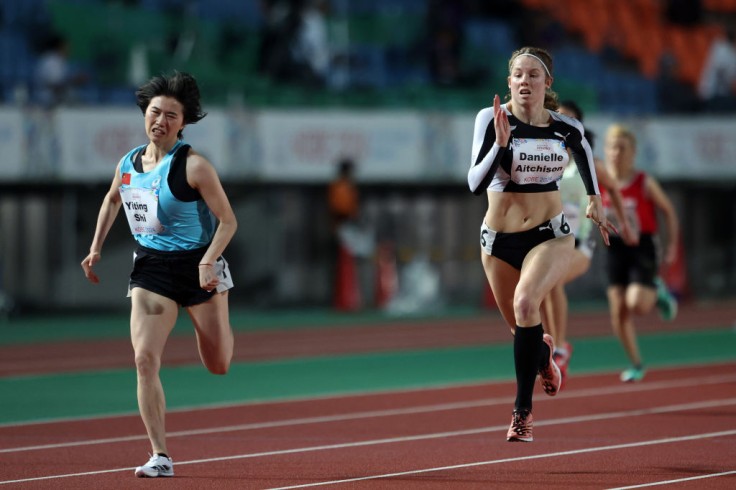
An Oregon sports stadium explode in boos as a transgender teenager, Aayden Gallagher, assured triumph in a high school track and field race.
Videos circulating on social media captured the crowd's disapproval as Gallagher crossed the finish line and received her gold medal.
Aayden Gallagher's Victory Sparked Controversy
Criticism flooded social platforms, with some asserting that Gallagher's participation in the girls' division was unfair due to perceived advantages assigned to those born male. Transphobic insults were also hurled at the teen.
Faultfinders like Riley Gaines and the far-right social media account "Libs of TikTok" lambasted Gallagher's win, emphasizing audience condemnation.
The Oregon School Activities Association (OSAA) and Portland Public Schools refrained from stating of opinion broadly on the backlash, citing obedience to OSAA management.
Gallagher's triumph reignited the continuous dispute on transgender athletes' qualifications, specifically regarding whether they should compete based on their gender identity.
The public assumption appears divided, with most conveying support for trans athletes competing based on their assigned sex at birth. Despite injunctions temporarily blocking bans on transgender student participation in some states, challenges persist.
The OSAA's policy permits trans athletes to compete based on their gender identity without mandating medical transition. However, twelve Republican lawmakers criticized this policy, citing Gallagher's participation as problematic.
Cyd Zeigler, an LGBTQ advocate, blamed the backlash against Gallagher, escalating her obedience to OSAA guidelines. Zeigler debates that critique should be conducted at the rule makers rather than the teenagers.
Transgender Athlete Secured Victory in High School Track and Field Race
Aayden Gallagher, a transgender athlete, attain winning in an Oregon girls' high school state championship for track and field this past weekend, acquiring gold in the 200-meter and silver in the 400-meter events.
However, amidst the triumph of her achievement, faultfinder labeled her as a "cheater," a typical allegation from those obstructing transgender athletes from participating in women's sports whenever they attain winning.
Contrary to these claims, Gallagher did not violate any rules. The Oregon School Activities Association (OSAA), the state's governing body for high school athletics, has furnished a policy permitting student-athletes to claim their gender and compete appropriately.
While some may question the fairness of this policy, directing allegations of cheating toward Gallagher, who is sincerely navigating her identity as a transgender teenager, is unfair.
The focus should instead be on scrutinizing the rules and holding the rule makers accountable. Criticizing Gallagher as a "cheater" is not only cruel but also disregards her genuine effort to compete authentically.
There is room for argument regarding the eligibility criteria for transgender athletes, specifically in varsity high school, college, and professional sports.
However, resorting to offensive labels like "cheater" undermines constructive discussion and fails to address the intricacies of the issue. It is important to involve transgender athletes in these dialogues and consider their perspectives and experiences.
Labels like "cheater" hinder progress toward equitable solutions for all athletes, regardless of their gender identity. Anticipating future discussions characterized by inclusivity and respect, to promote fairness and equality in sports.
Related Article: Novo Nordisk Releases New Study Offering Insights Into Long-Term Effects of Weight Loss Medications